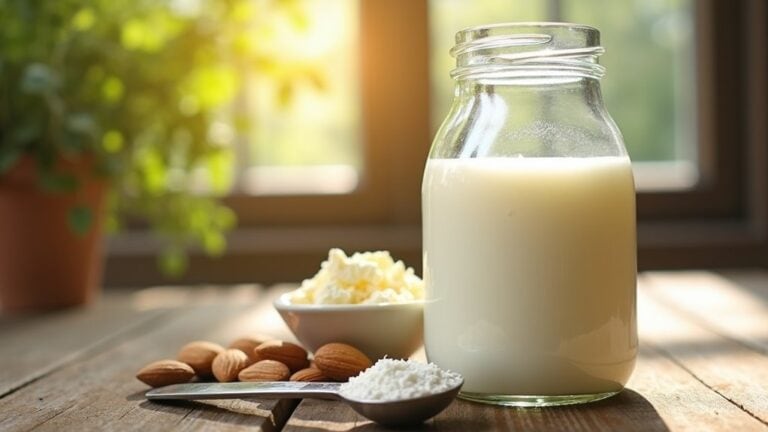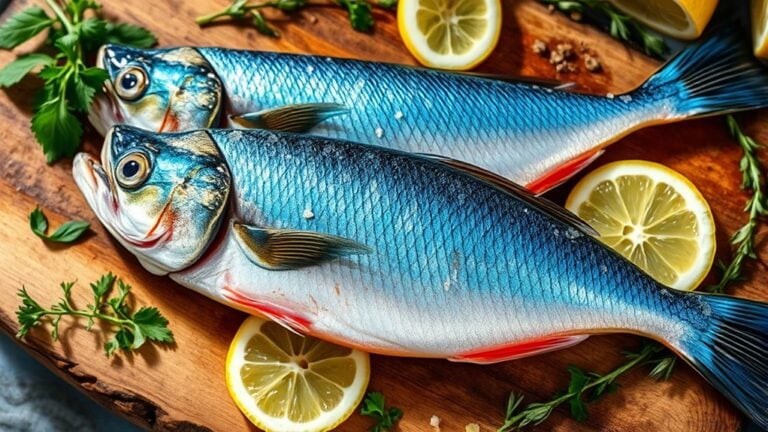Sugar could seem harmless, but its effects on the body go deeper than just empty calories. It triggers blood sugar spikes, strains the pancreas, and can lead to insulin resistance paving the way for type 2 diabetes. Worse, excess sugar gets stored as liver fat, increasing the risk of fatty liver disease. It also fuels inflammation, damaging blood vessels and raising heart disease risks. The beneficial news? Natural alternatives like honey and maple syrup offer sweetness with fewer downsides when enjoyed mindfully.
The Silent Killer: How Sugar Disrupts Your Body
Sugar can appear harmless, even soothing, but its impacts on the body are anything but pleasant. High sugar intake spikes blood sugar levels, forcing the pancreas to release insulin repeatedly. Over time, this strains the body, raising the risk of insulin resistance—a precursor to type 2 diabetes.
Excess sugar also turns into fat in the liver, harming health and increasing the chance of fatty liver disease. Foods loaded with sugar contribute to inflammation, which damages blood vessels and strains the heart. Studies link frequent sugar consumption to higher heart disease risk, as it disrupts metabolism and blood pressure.
Cutting back on sugary foods helps stabilize energy and protects long-term health, making small changes a big win for the body.
The Vicious Cycle of Sugar Addiction and Weight Gain
- Sugar cravings trigger more eating, fueling weight gain.
- Insulin resistance makes fat storage easier, worsening obesity.
- Excess sugar turns into liver fat, mimicking alcohol damage.
- Sugar substitutes can help, but comprehending this cycle is an initial stride toward healthier choices.
Surprising Health Risks Linked to Excessive Sugar Consumption
Sweet treats can seem harmless, but too much of them can quietly wreak havoc on the body in unexpected ways. Consuming too much added sugars, often concealed in processed foods and drinks, raises the risk for heart attack and Cardiovascular Disease by promoting inflammation and insulin resistance.
High sugar intake overwhelms the liver, leading to fatty liver disease, while excessive sugar per serving spikes blood sugar, straining the body over time. Even seemingly healthy options, like fruit juices, can pack surprising amounts of sugar, contributing to these health risks.
Over time, the strain on essential organs and metabolic systems can lead to chronic conditions, making it imperative to monitor daily sugar consumption for long-term wellness.
Hidden Sources of Sugar in Everyday Foods
Many everyday foods pack more sugar than people realize, often concealing it under different names or blending it into items that don’t even taste sweet. Added sugars sneak into unsuspecting Sources like condiments, granola bars, and even savory snacks, contributing to weight gain and increased health risks. Natural sugars in fruit juices or flavored yogurts can also spike sugar levels without obvious warning signs.
Condiments & Sauces: Ketchup, barbecue sauce, and salad dressings often contain much added sugar per serving.
“Healthy” Snacks: Granola bars and flavored yogurts disguise high sugars behind health claims.
Breads & Wraps: Even whole-grain options sometimes include added sweeteners.
Canned & Packaged Foods: Soups, baked beans, and instant oatmeal frequently harbor concealed sugars.
Reading labels helps uncover these stealthy additions, empowering better choices.
The Role of Simple Carbohydrates in Blood Sugar Spikes
Simple carbohydrates cause blood sugar to rise quickly because they disintegrate into glucose at a fast rate. This rapid spike forces the pancreas to release large amounts of insulin, which can lead to insulin resistance over time.
Without careful choices, these processed carbs contribute to weight gain and increase the risk of type 2 diabetes.
High Glycemic Index Impact
Frequently, foods like white bread, pasta, and pastries send blood sugar levels soaring because they disintegrate into glucose almost instantly. These simple carbohydrates have a high glycemic index, causing rapid spikes in high blood sugar followed by sharp crashes. Processed Foods often contain excess sugar, which worsens the effect.
- Quick Digestion: White bread and similar foods dismantle fast, flooding the bloodstream with glucose.
- Energy Rollercoaster: Blood sugar levels spike and drop, leading to fatigue and cravings.
- Hidden Additives: Sugar is added to many processed items, making them even more problematic.
- Long-Term Risks: Frequent spikes strain the body’s ability to manage blood sugar effectively.
Choosing whole grains or fiber-rich alternatives helps stabilize energy without the sudden highs and lows. Small swaps can make a big difference in how the body handles sugar.
Insulin Resistance Development
Over time, regularly eating foods that send blood sugar soaring can mess with the body’s ability to respond to insulin, a key hormone that keeps energy levels in check.
Simple carbs like white bread and fructose corn syrup trigger rapid glucose spikes, forcing the pancreas to pump out more insulin. Whenever this happens too often, cells stop reacting properly, leading to insulin resistance.
This creates a vicious cycle—higher blood sugar, greater accumulation of fat, and even high blood pressure. Much added sugar, including sugary drinks, raises the risk further.
Though artificial sweeteners and sugar alcohols might seem like fixes, they can still disrupt metabolism. Cutting back on sugar per day lowers the increased risk for heart issues and helps the body regain balance.
Carb Processing Consequences
Because the body processes them almost instantly, simple carbohydrates send blood sugar levels skyrocketing—and that’s where the trouble starts. These carbs, found in processed foods like white bread and pastries, spike glucose levels rapidly, forcing the body to release extra insulin. Over time, this cycle strains the system, leading to insulin resistance and increasing the risk of type 2 diabetes.
High glycemic index foods—like sugary snacks—cause sharp blood sugar swings, unlike whole grains or natural sources.
Whole foods—such as fruits that contain natural sugar—release energy gradually, avoiding crashes.
Insulin resistance develops when cells ignore constant high insulin signals, disrupting metabolism.
Switching to whole grains stabilizes glucose levels, reducing long-term health risks.
Choosing better carbs matters—what goes in shapes how the body responds.
Healthy Sugar Alternatives for a Balanced Diet
Several natural sweeteners offer benefits over refined sugar, like added nutrients and a gentler impact on blood sugar.
In the event that alternatives such as stevia, honey, and maple syrup provide healthier options, they should still be used mindfully. Even better choices can contribute to excess calories if not consumed in moderation.
Natural Sweetener Benefits
- Rich in nutrients: Natural sweeteners like raw honey and maple syrup contain vitamins and minerals absent in refined sugar.
- Lower glycemic impact: Some alternatives, such as coconut nectar, cause slower blood sugar spikes.
- Antioxidant properties: Compounds in raw honey and maple syrup help combat oxidative stress.
- Versatile use: They can replace sugar in drinks, baking, and dressings without sacrificing flavor.
Choosing natural options supports overall wellness while satisfying a sweet tooth.
Moderation With Alternatives
Even the healthiest sugar alternatives require thoughtful consumption to avoid unintended drawbacks. While stevia, honey, and maple syrup offer benefits, too much sugar, regardless of type, can still harm health.
The American Heart Association recommends no more than 25 grams of sugar per day for women and 36 for men, as excess added sugar per day is linked to an increased risk of heart attack and stroke, including high blood pressure. Though natural, these sweeteners still contribute calories and impact blood sugar.
Using a sugar substitute prudently means measuring portions—like exchanging 1 tsp honey for 1 tsp sugar—and balancing intake with whole foods. Moderation secures benefits without overburdening the body with concealed sugars or unwanted side effects.
Practical Tips for Reducing Sugar Intake in Daily Life
While cutting out sugar completely might feel overwhelming, small, practical changes can make a big difference in daily habits. The average American consumes far more sugar than recommended, increasing the risk of heart disease and other health issues. Reducing sources of added sugar in foods and beverages can lead to a greater sense of well-being—and the body will thank you later.
Swap sugary drinks for water, herbal tea, or sparkling water with a splash of fruit.
Choose whole fruits instead of processed snacks to satisfy a taste sweet craving naturally.
Read labels carefully, avoiding products where sugar is a top ingredient.
Use natural sweeteners like honey or maple syrup sparingly instead of common sweeteners like high-fructose corn syrup.
Small steps create lasting habits.
Conclusion
Research confirms sugar’s dangerous effects, linking it to diabetes, heart disease, and liver damage. Yet, natural sweeteners like honey or maple syrup provide a safer option with added nutrients. By recognizing obscured sugars in processed foods and swapping them for whole-food alternatives, health risks decrease dramatically. Small, mindful changes—like reading labels or opting for fruit—can break sugar’s grip, proving that sweetness doesn’t have to come at a cost.




